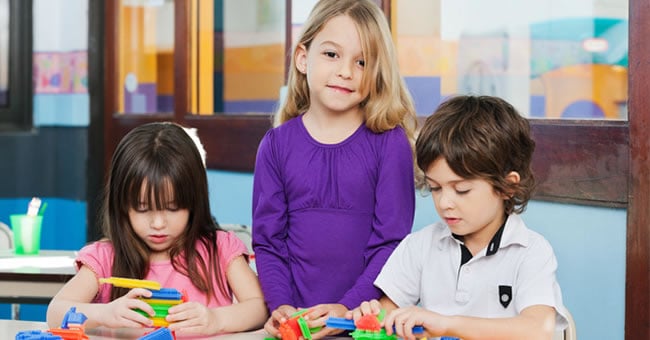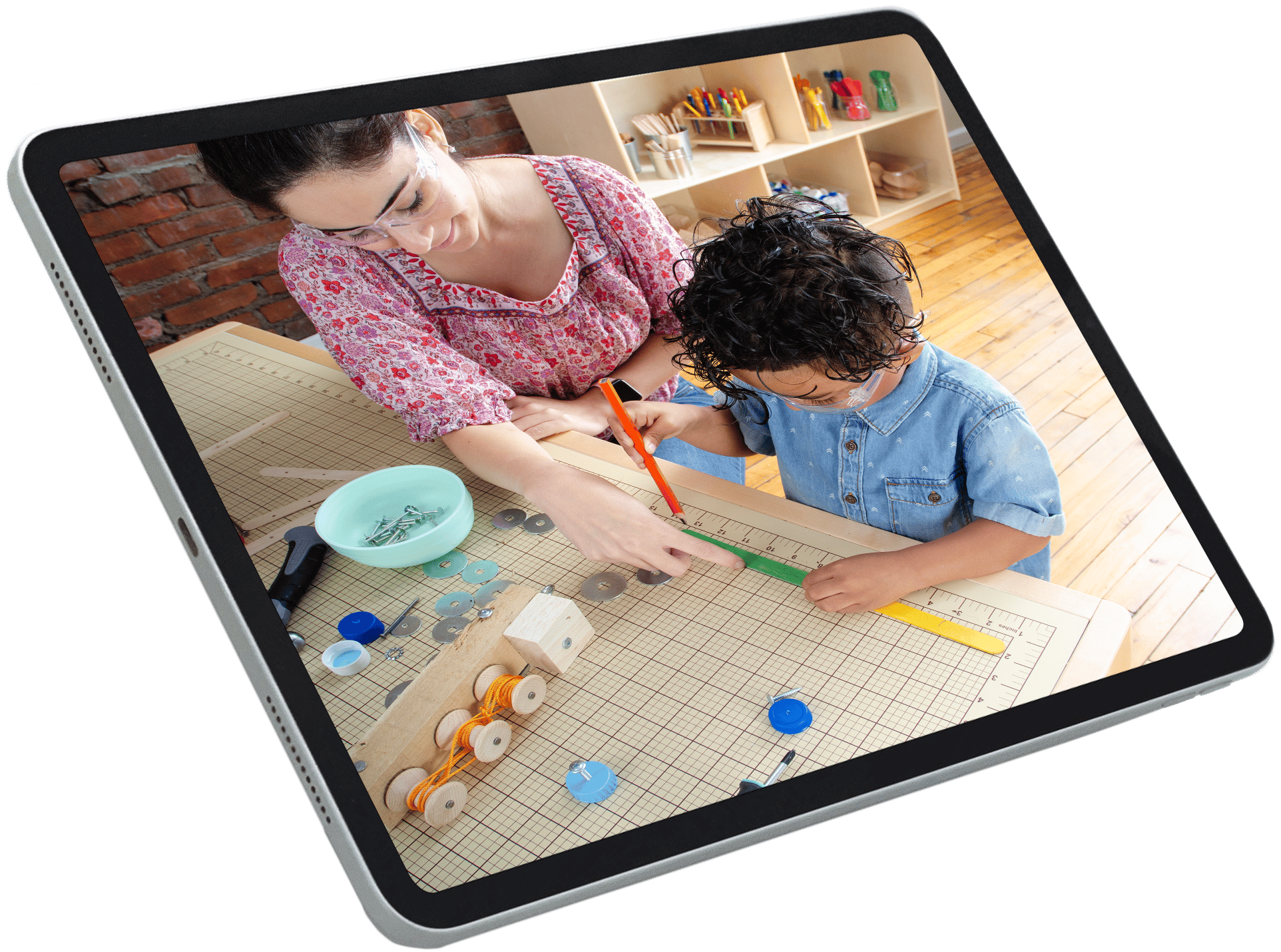
A time of transition can be scary and stressful at any age, but how can you best prepare preschool-age children for what will be one of the first significant changes they experience in life? Whether it's a home environment or a preschool classroom, preschoolers will be leaving an environment that they're comfortable and familiar with and entering a new one when they start kindergarten. Preparing them for that period of adjustment and ensuring that they have the skills they need to be successful in school is essential to helping them make a smooth and positive transition into kindergarten.
Social and Emotional Preparedness
Young children won't be able to deal with the feelings that come with change if they're not prepared socially and emotionally. It's important that you work with preschool-age children on developing their social and emotional intelligence to ensure they have the skills they need, including the following:
- Plays Well with Others – An ability to play and work well with others is an essential skill for young children to have or be developing. Many of the activities you do in your classroom should encourage cooperative play and allow for plenty of teamwork opportunities.
- Follows Directions – If children cannot follow simple directions, they will struggle with adjusting to their new environment and to their new teacher. An inability to follow directions may also lead to behavior issues in the classroom. Make sure the preschoolers in your care know that they are expected to listen to and follow directions.
- Effectively Communicates with Others – Having the ability to effectively communicate one's thoughts, needs, and wants is an essential life skill that plays a large role in how successful children are in school and as an adult later in life. You can increase children's communication skills by having them use complete sentences when they talk, helping them practice their conversation skills, and giving them the tools they need to expand their vocabulary.
- Practices Self-Control – Having the ability to control impulses and emotions can help rising kindergarteners understand right from wrong and make better choices. Discuss how children can best handle their emotions and teach them about stress management. Establishing boundaries for children and setting rules and limits for children to follow can help young children develop their self-control and self-regulation skills.
- Cares for and Empathizes with Others – A child's ability to relate to others has a major impact on how he or she reacts to different situations. Children who care for and empathize with others are often more accepting of differences and find it easier to have conversations and respond to social cues. Talk to children about embracing differences and similarities and give them plenty of opportunities to practice their manners.
Academic Preparedness
In addition to social and emotional skills, children also need a variety of academic-related skills to help them prepare for the transition to kindergarten:
- Early Math and Literacy Skills – Children need to have beginning skills in math and literacy (counting, sorting, etc.) when they enter kindergarten. It's important that you build on the skills the children in your care already have, and try to prepare them as much as possible for learning in their new environment.
- Self-Efficiency – Rising kindergarteners should have the ability to take care of personal needs, such as handwashing or going to the bathroom. Teaching them how to wash their hands, brush their teeth, etc. encourages independence and has a positive effect on their overall health now and in the future.
- Gross Motor Skills – It's important for you to help preschoolers develop the gross motor skills they need to participate in activities that require coordination and balance. They will eventually use these skills to ride a bike without training wheels, play tag on the playground, and participate in team sports.
- Fine Motor Skills – Helping children develop fine motor skills is as equally important as helping them develop gross motor skills. If children haven't developed the small muscle coordination they need to hold a pencil or paintbrush by the time they enter kindergarten, they will have a difficult time completing activities and learning in their new environment.
- Natural Curiosity – Make sure you take time to encourage children's natural curiosity in preschool. Natural curiosity will help rising kindergarteners explore different concepts, ask questions, and experiment in the classroom. They'll also be more open to trying new things.
Involving Children's Families
A child's family is one of the greatest tools you can utilize in preparing him or her for the transition to kindergarten. Here are a few ways you can encourage family engagement and keep families involved in their child's learning and development:
- Talk with families about what their children are expected to know when they enter kindergarten. Letting families know what their children need to work on before the start kindergarten can give families the information they need to extend learning outside of the classroom. Networking with the preschool and kindergarten teachers in your community also lets families know that everyone is working together to meet early learning standards and make the transition to kindergarten as smooth as possible.
- Give families tips on what they can do at home to help their preschooler be prepared for kindergarten. Sending home activity sheets or take-home kits is a great way to encourage parents to support learning at home while building the school-home connection. Let families know that simply reading to or with their child every day can make a world of difference in preparing a child for kindergarten.
- Make sure families know about kindergarten registration and screening and any other important information. Each school district has different kindergarten registration and screening requirements. Make sure your preschoolers' families know how to enroll their children in kindergarten. Send home reminders of important dates or let them know where they can find all of the information they need.
Browse the School Readiness category of our Insights and Inspirations section for even more tips on helping children prepare for the start of kindergarten or the start of a new school year. We also have a variety of wonderful learning materials available in the Family Engagement and Social and Emotional sections of our website.
